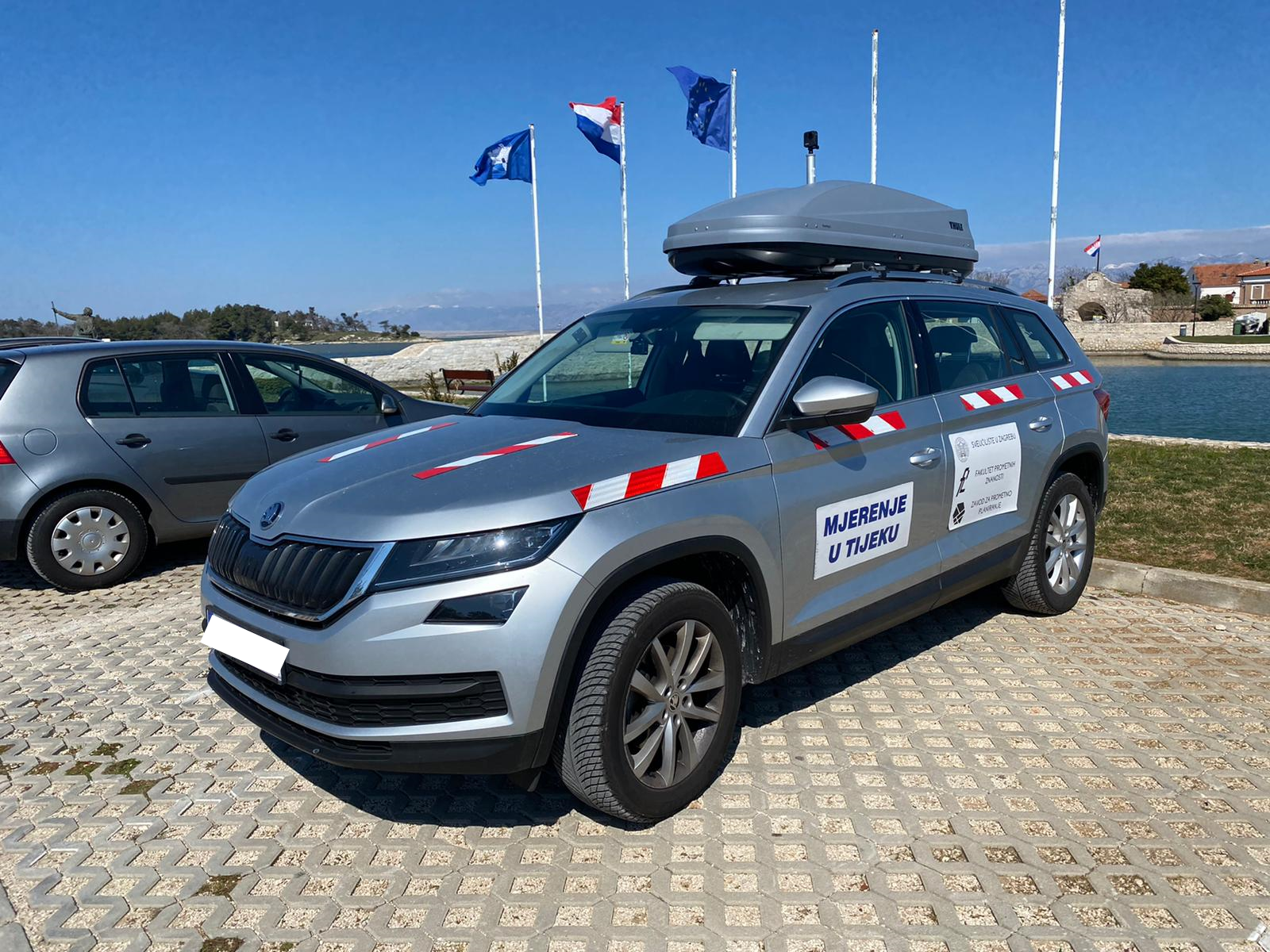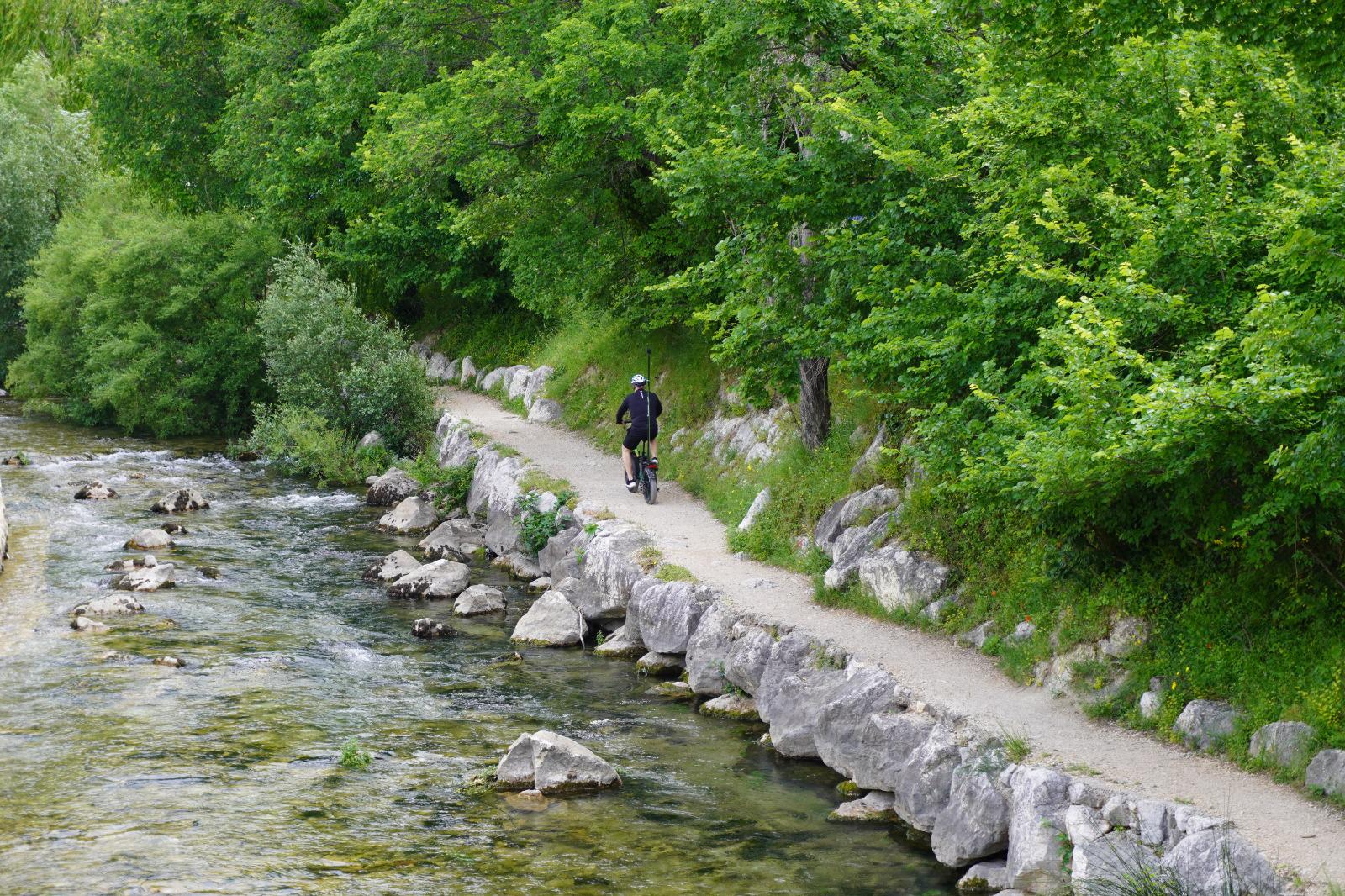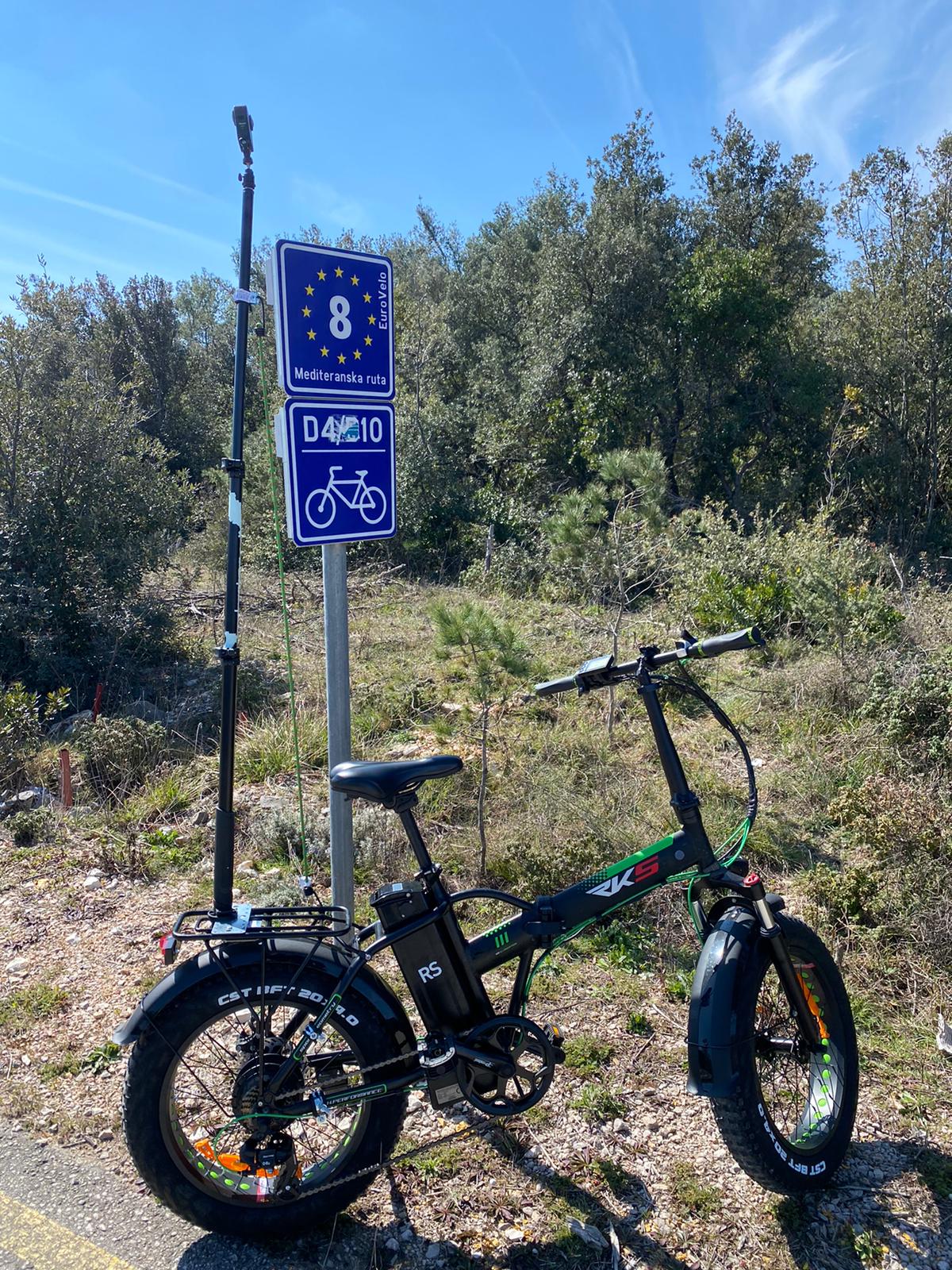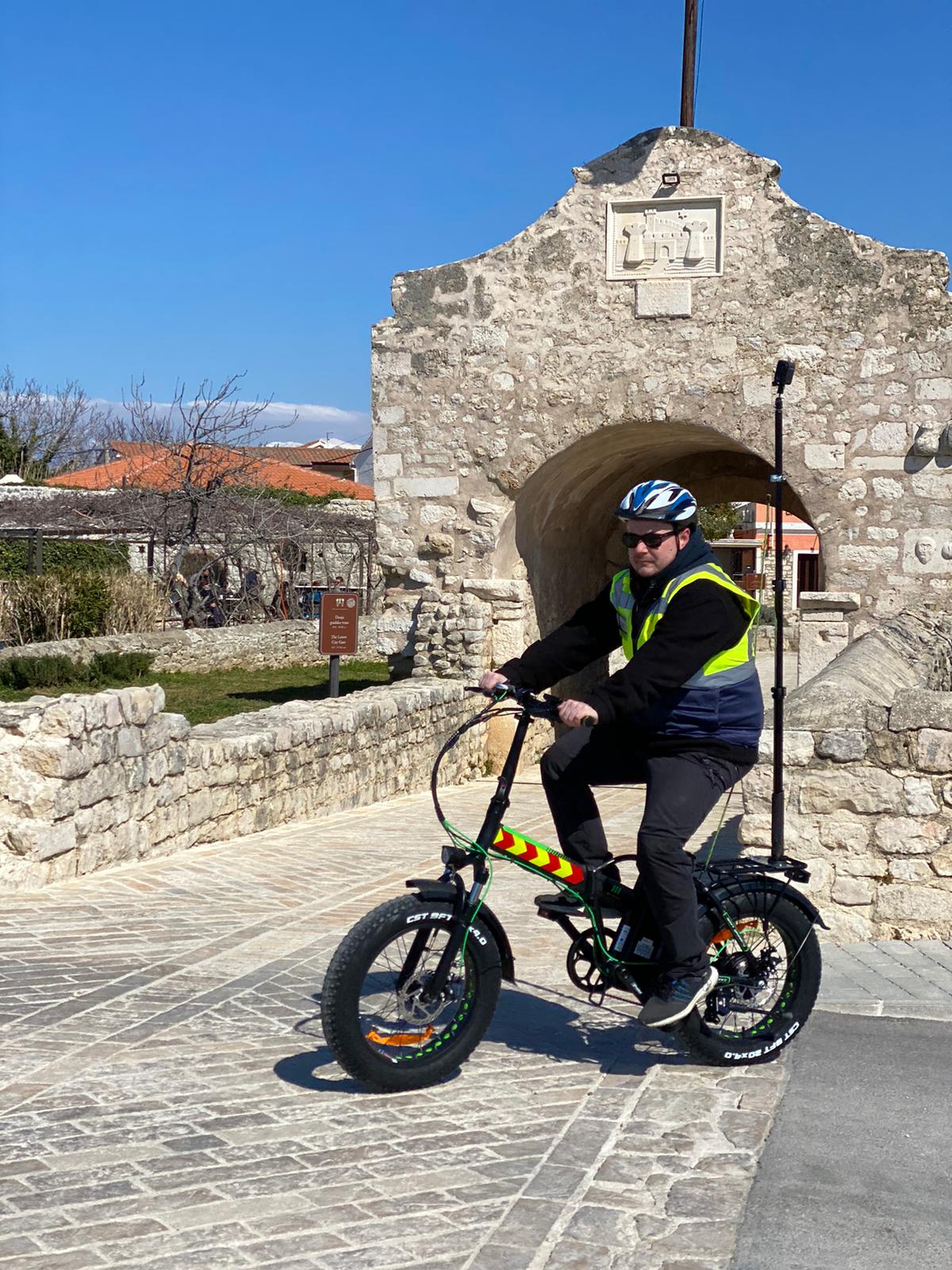SABRINA - SAFETY INSPECTIONS OF BICYCLE ROUTES IN CROATIA
30-06-2021
Inspection and safety ratings of the Danube Area bicycle routes are one of the main activities of the SABRINA project. We are focusing on EuroVelo bicycle routes (EV no. 6, 8, 9, 11, 13, and 14) crossing countries involved in the SABRINA project. Considering the travel restrictions this was the project activity that was the most affected by the Covid-19 pandemic. However, we used the lockdown times wisely and thoroughly prepared for the fieldwork.
The activity is led by our Romanian project partner Agile Transport Analysis S.R.L., supported by the University of Zagreb, Faculty of Transport and Traffic Sciences (FPZ) with all other project partners being involved. In the past months, an online database was established where we defined all the bicycle routes that we were planning to inspect for safety using a specially equipped car, bicycle, and software. Trained analysts from the FPZ team have done several tests of the equipment on the field, dealt with weather that makes the filming and later analyzing of the videos impossible, and with early glitches in the newly developed surveying system. However, hard work paid off and in late spring we could start with safety inspections of the EV routes in Croatia.


More than 400 km of EV routes no. 8 and 13 were filmed in Istria (the peninsula in the northwest of Croatia), Velebit mountain and Dalmatia (central and south of Croatia), and in Slavonia (east of Croatia). Inspections focus on 52 road design features known to influence crash likelihood and severity of injuries of road users and cyclists in the mixed traffic environment. Following the completion of the video-based inspection, each relevant design feature will be inspected and rated according to the existing Road Assessment Programme (RAP) protocols (iRAP and CycleRAP) and European Certification Standardization (ECS) developed by the European Cyclists' Federation (ECF). The results, including the iRAP Star Rating of the routes, will show us how safe the routes are for road users and cycling and what could be done to improve the road infrastructure to increase road safety for cyclists.
The experience from the field was regularly shared by the FPZ team with all the project partners during our internal meetings. We believe that the valuable information will be very helpful when navigating the potential road works and closures, GPS dropouts, soggy weather, and other unexpected things one can experience during such a wide-scope survey. With travel restrictions being loosened, the next country in the row for EuroVelo route surveys and inspections is Slovenia. Stay tuned for more information from the field: follow us on social media for all the latest updates.


Photo 1: Survey car
Photos 2 and 4: Survey bicycle in action
Photo 3: Survey bicycle
Photo credit: Faculty of Transport and Traffic Sciences, University of Zagreb
![]()



